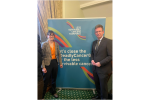The Russian invasion of Ukraine is one of those events that manages to be shocking without being surprising. President Putin’s rhetoric, Russian claims of entitlement to Ukrainian territory and of course the massive build-up of Russian military forces on Ukrainian borders made invasion an evident prospect, even if we all hoped it would not happen. In foreign policy terms, several difficult judgments need to be made by the United Kingdom and its allies. Is this invasion a demonstration of Putin’s determination to re-draw the iron curtain further to the West, or, as some have suggested, that he is no longer acting rationally? Certainly it could be argued that he is achieving the exact opposite of his stated aim - to reduce what he sees as the threat NATO poses to Russian security. His invasion of Ukraine in uniting NATO more closely against him, is causing it to be better funded as Germany abandons its historical reluctance to spend more on defence, and is likely to lead to the reinforcement of NATO’s Eastern border and the presence of more NATO forces closer to Russia, evidence perhaps of a lack of rationality. But in truth whether Putin’s aggression is calculated or deranged, NATO’s next move may need to be the same. Mad or bad, Putin has not been deterred by diplomacy. I hope the economic sanctions imposed upon him are effective. They are certainly extensive. I fear however that we will not be able to avoid increased defence spending and a willingness to deploy our forces where they are needed. Other countries whose interests and values do not match our own are watching carefully our response to Russia.
Whatever our conclusions on long-term strategy though, we have another, more immediate concern. The Russian invasion of Ukraine has created a huge and growing humanitarian crisis. Hundreds of thousands, perhaps millions, will flee war and seek refuge in Europe and the UK. We do have a moral duty to help. We cannot of course allow access to this country with no checks at all, we have learned to our cost that Russian agents can and will act, even act lethally, on our soil, and may pose as something they are not to gain entry. Neither can we ignore the strain on our housing stock and public services which huge numbers arriving will bring, but there is much we can and should do. We should, and we will, allow entry to family members of Ukrainian citizens living here, and Ukrainians with no family ties to come via a simple and flexible process, as I argued in the House of Commons this week. We will allow them to work and be educated here under immigration arrangements that will last initially for 12 months. We can help those who arrive to cope with the terror and trauma of what has happened to them and to their country, and we can do everything possible to get them back to the country which overwhelmingly they want to get back to and to rebuild. It is in fact that widespread wish to return which enables us to be generous in our immigration approach. In reality, these people are not immigrants – they did not choose to leave their country and the vast majority of them will not seek to remain permanently in ours. They need our help largely because they share our values and have been brave enough to stand up to a dictator who does not. We should do what we can to offer it.

